Measuring resilience in Syrian refugee youth
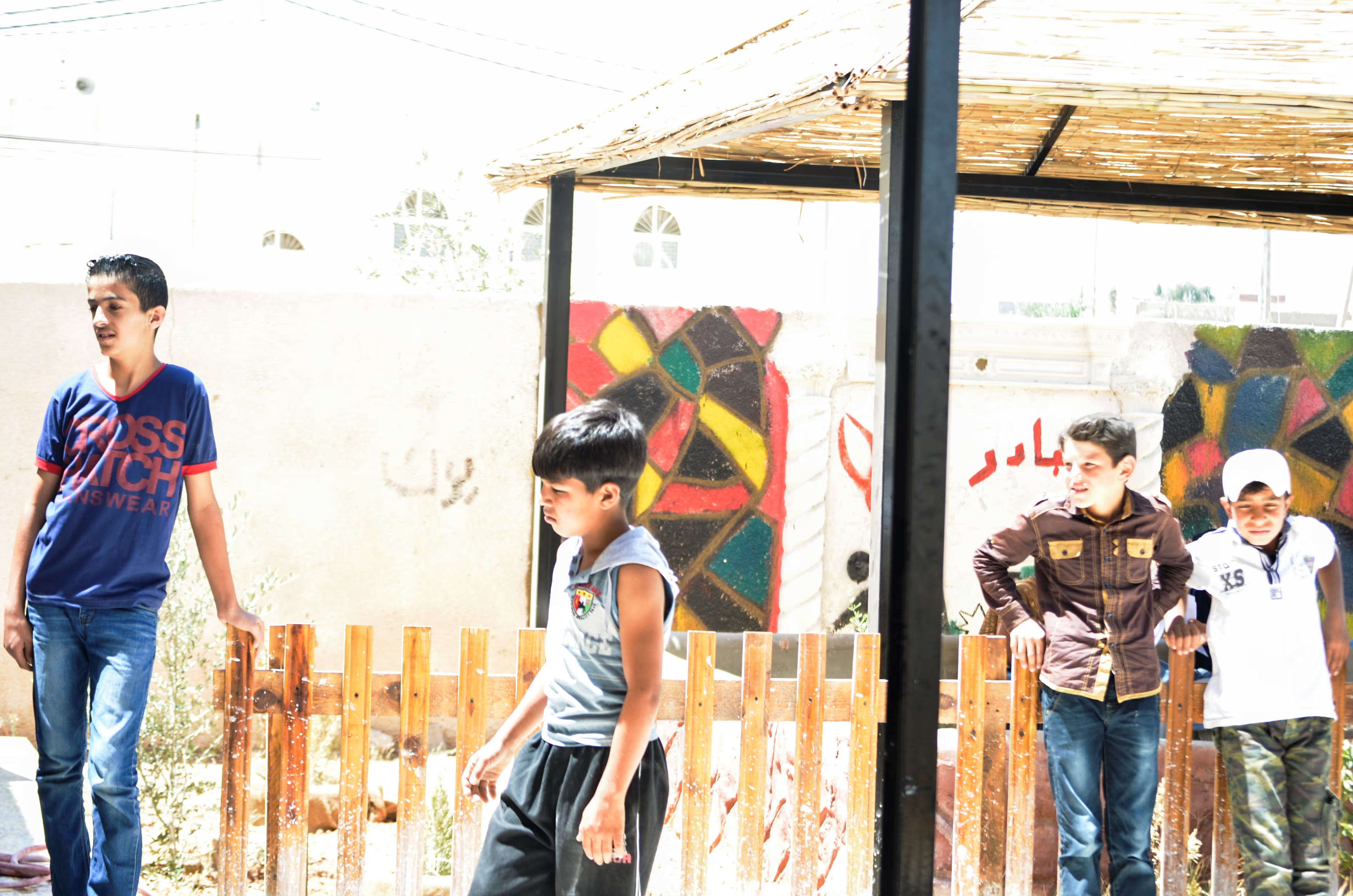
The youth and community centre in Mafraq we were visiting bore all the familiar hallmarks of facility serving contemporary global youth: poster-bedecked rooms depicting preoccupations with cute animals, music idols and inspiring mottos; computer workstations to facilitate engagement with new technology and the virtual world; a diverse panoply of costume from traditional dress to the oversized Premiership football shirt; and a buzz of animation as staff corralled energetic youngsters from one planned activity to another.
However, this scene, however ordinary, was being played out in extraordinary circumstances. Mafraq is a Jordanian city just 10 miles from the Syrian border, and its population has been swollen by the arrival and settlement of nearly 80,000 refugees. The Mercy Corps programme we are evaluating – the reason for my visit along with colleagues from Yale and the local NGO (Taghyeer) supporting data collection - is part of a major No Lost Generation initiative striving to sustain the mental health, well-being and material life skills of children threatened by the cataclysmic events in the region.
A small scuffle between two lads initially reinforced this image of the familiar and the ordinary. But its swift escalation, and especially the distorted, uncontrolled grimaces of the protagonists, hinted at the fear, loss and humiliation that these young lives were carrying. This group of ‘new arrivals’ had not only faced the perils of flight across insecure terrain, they had not only faced disorientation and potential marginalization on arrival in the overcrowded conditions of Mafraq, they had been hunkered down for years in their homes as the destruction and violence all around them daily informed the calculus of whether to flee to the unknown was preferable to the insecure, diminished reality of their current lives. Many children we have assessed in such settings show mental health difficulties at the time of entering the programme. Losing their home and belongings, not being able to return to home and not being able to continue school are the major preoccupations for children reported.The youth and community centre in Mafraq we were visiting bore all the familiar hallmarks of facility serving contemporary global youth: poster-bedecked rooms depicting preoccupations with cute animals, music idols and inspiring mottos; computer workstations to facilitate engagement with new technology and the virtual world; a diverse panoply of costume from traditional dress to the oversized Premiership football shirt; and a buzz of animation as staff corralled energetic youngsters from one planned activity to another.
However, this scene, however ordinary, was being played out in extraordinary circumstances. Mafraq is a Jordanian city just 10 miles from the Syrian border, and its population has been swollen by the arrival and settlement of nearly 80,000 refugees. The Mercy Corps programme we are evaluating – the reason for my visit along with colleagues from Yale and the local NGO (Taghyeer) supporting data collection - is part of a major No Lost Generation initiative striving to sustain the mental health, well-being and material life skills of children threatened by the cataclysmic events in the region.
A small scuffle between two lads initially reinforced this image of the familiar and the ordinary. But its swift escalation, and especially the distorted, uncontrolled grimaces of the protagonists, hinted at the fear, loss and humiliation that these young lives were carrying. This group of ‘new arrivals’ had not only faced the perils of flight across insecure terrain, they had not only faced disorientation and potential marginalization on arrival in the overcrowded conditions of Mafraq, they had been hunkered down for years in their homes as the destruction and violence all around them daily informed the calculus of whether to flee to the unknown was preferable to the insecure, diminished reality of their current lives. Many children we have assessed in such settings show mental health difficulties at the time of entering the programme. Losing their home and belongings, not being able to return to home and not being able to continue school are the major preoccupations for children reported.
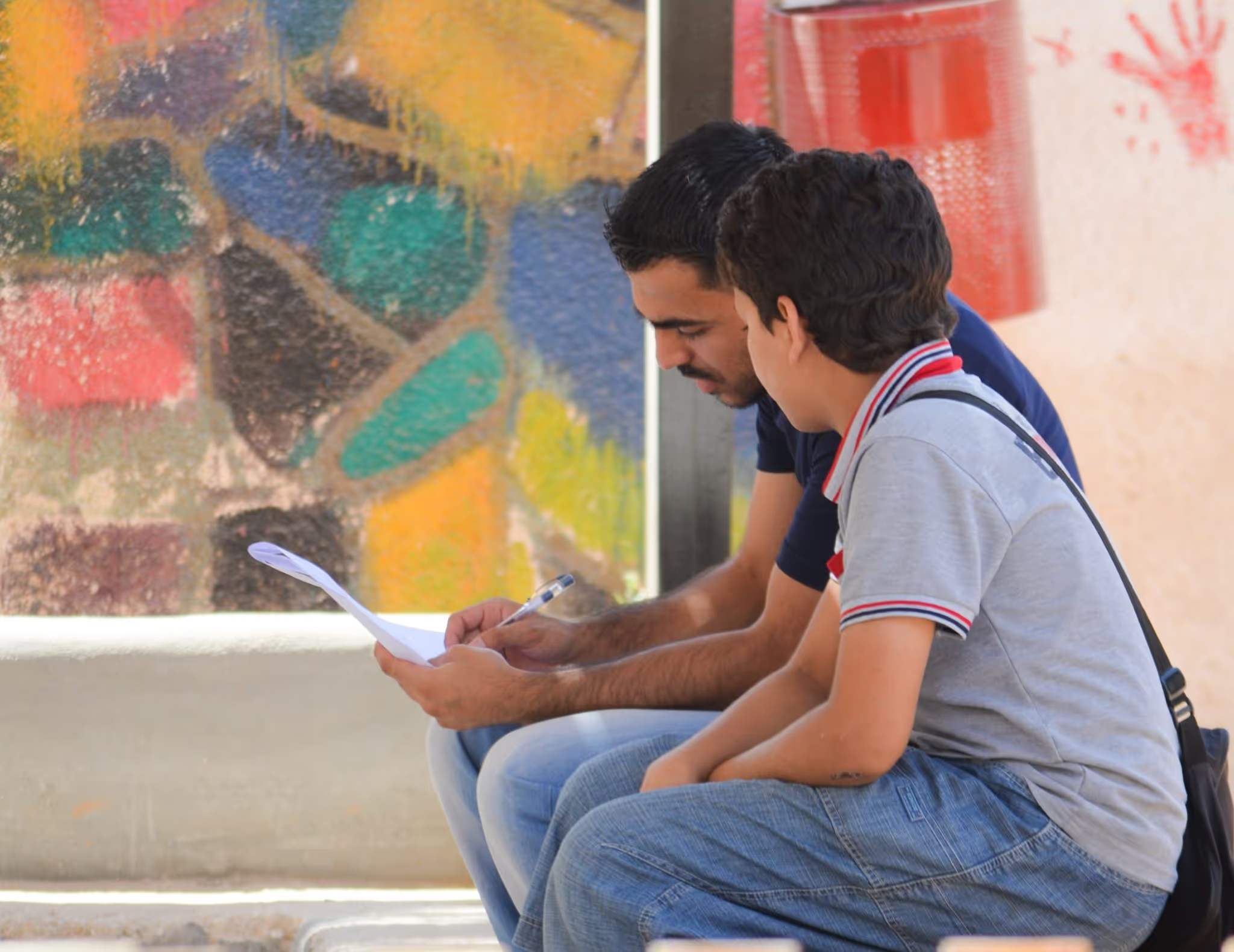
I have visited scores of refugee situations as a researcher or representative of a UN or non-governmental agency since my first visit to a refugee camp in Malawi back in 1990. There are many consistent features in these scenarios, such as the importance of the provision of basic services of food, shelter and healthcare; growing sensitivity to the toll of displacement on the mental health and psychological well-being; the importance of engaging the significant skills and capacities of refugees in their settlement – temporary or extended – in a new country. But there are two major features of the current crisis which are unique. First, the global humanitarian system is faced by an unprecedented number of major ‘Level 3’ emergencies; not just in Syria, but simultaneously in Iraq, in Yemen, in South Sudan and – at one stage earlier last year – also in Nepal. Second, the humanitarian system – and the respect of states for their signed treaty obligations of refugee reception and ‘burden-sharing’ on which it depends – is showing clears signs of unravelling. Funding to support kids in settings such as Mafraq – and the communities that are hosting them – is becoming severely restricted, as resources and focus get sucked towards other aspects of the crisis.
In such a context documenting the impact of mental health and psycho-social support programming on these kids’ lives seems all the more important. In discussions within the research team and with local partners, issues such as the sensitivity to change of evaluation measures and finding a research design that controls for confounders, become matters of crucial relevance rather than academic niceties. We have promising pilot data on the reliability and sensitivity of mental health, distress and insecurity self-reports, corroborated with measures of cognitive function and bio-markers of physiological stress. Reviewing the conditions in which children engage in the program evaluation gives us valuable insight into ways of ensuring that such data are robust.
There remains something missing, however. Our local research team had felt that our measures were not fully capturing the resources of children in a situation of such adversity. “As well as assessing their stress and trauma, can’t we measure their resilience?”, they had asked. This request provided a delightful illustration of the potentials of contemporary research collaboration. The Yale team approached Canadian colleagues whose collegiality in past meetings had been much appreciated. They enthusiastically endorsed the idea to develop their youth resilience scale, developed across a number of different cultures, in Arabic for this youth in this Middle East population.
We had already tried other ways to capture culturally-relevant dimensions of resilience, and moved to develop this one scale for the refugee context. We began with a process of iterative translations and back-translations, discussed key terms that captured aspects of psychosocial support and a sense of belonging in focus group discussions, and begun a pilot survey. Witnessing the focus group discussions, it was apparent that key concepts were indeed resonating with the youth present. Back at Taghyeer, the office of our Jordanian academic partner, we ran analyses of pilot data and tests of internal consistency and face validity. The resilience measure became the final jigsaw piece in comprehensive battery of assessments that were now ready for use in the forthcoming study baseline.
We leave Jordan with a vivid awareness that, over and above offering humanitarian assistance, it is a moral necessity to robustly document the impact of programs that seek to alleviate suffering and toxic stress. With committed partnerships – bringing together research scholars, humanitarian practitioners, graduate students, and the funders who facilitated this work – we have put in place the most rigorous available means of documenting the impact of humanitarian programming in the lives of these young people. It is a modest weapon in the context of the current turmoil of the Middle-East, but clearly a crucial one.
Alastair Ager is Director of the Institute for Global Health and Development, Queen Margaret University, Edinburgh and Professor of Population and Family Health, Columbia University, New York.
Stay updated
Sign up for our newsletter to receive regular updates on resources, news, and insights like this. Don’t miss out on important information that can help you stay informed and engaged.
Related articles
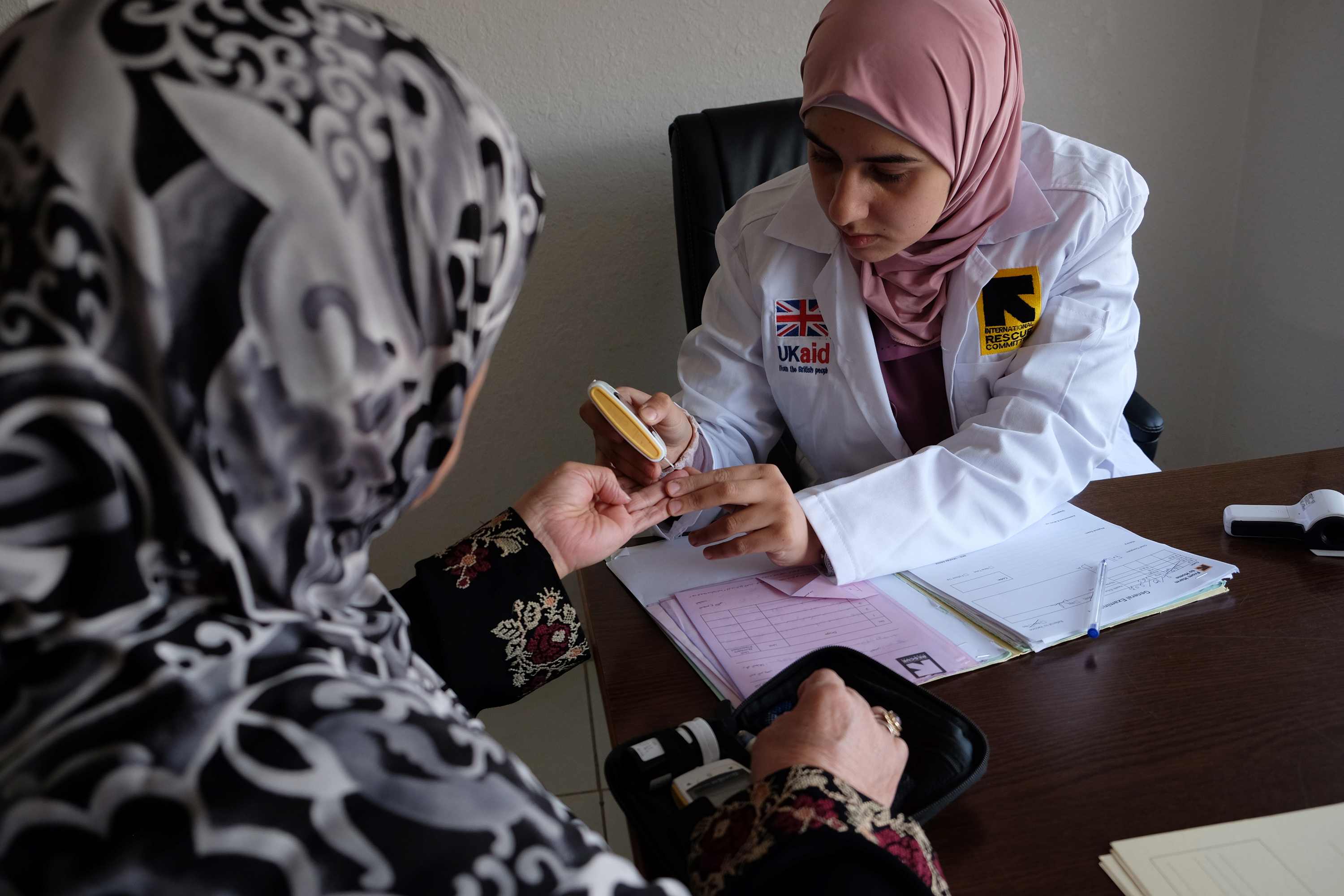
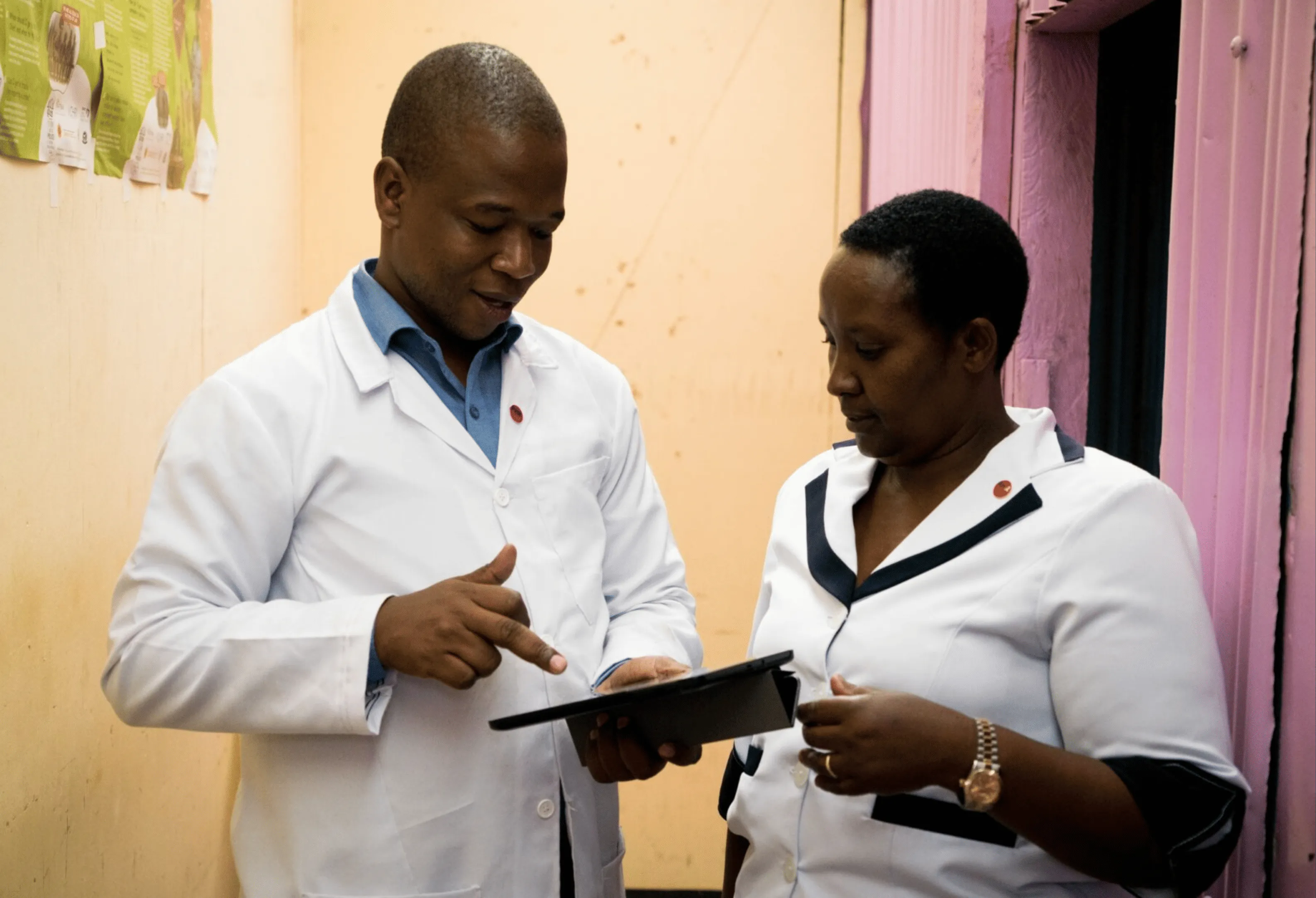
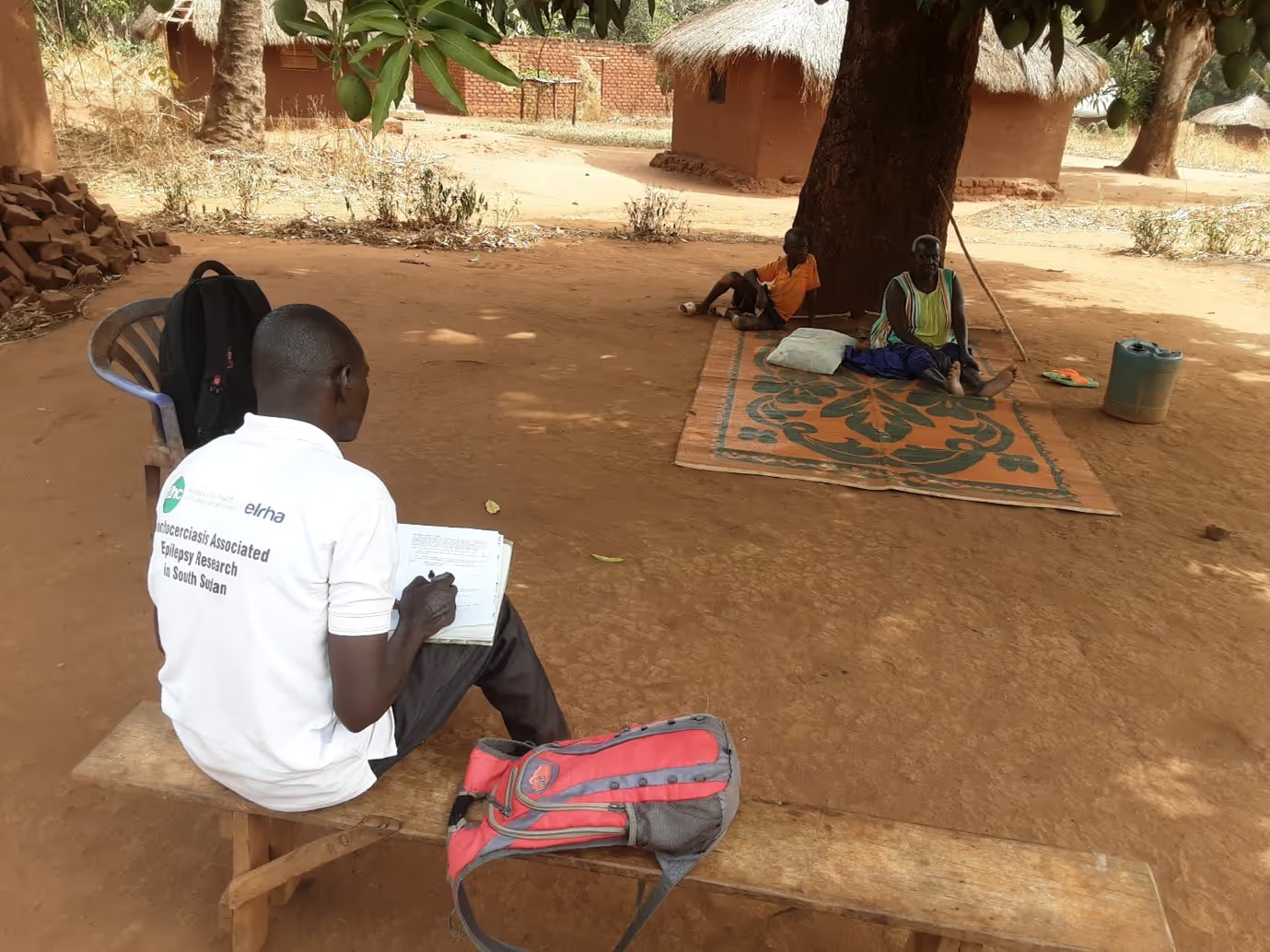
Explore Elrha
Learn more about our mission, the organisations we support, and the resources we provide to drive research and innovation in humanitarian response.